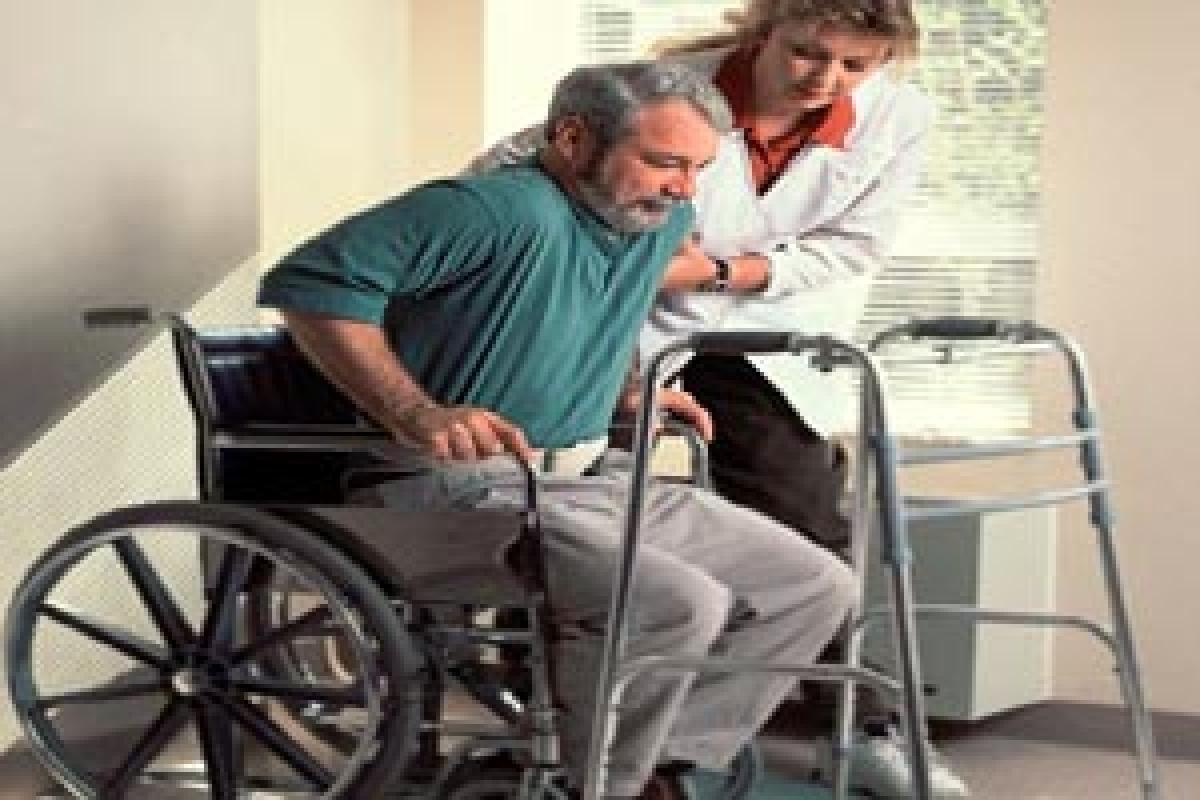Live
- Job fair for pharmacist roles tomorrow
- New ration cards to be issued in January
- Job mela at Masab Tank tomorrow
- New toilets facilitated for MPP school students
- Steps to safeguard natural springs gain momentum
- RWAs want officials to clear fog over SCB-GHMC merger
- Tanks, canals remain neglected despite execution of MGNREGS works
- BRS to celebrate Deeksha Diwas on Nov 29, Dec 9
- NCC Day grandly celebrated at SITAM
- CITU demands rollback of strategic sale of VSP
Just In
Bacterium in under-cooked chicken causes paralysis: Study


US researchers have identified a bacterium, commonly found in undercooked chicken, that may cause Guillain-Barre Syndrome (GBS).
US researchers have identified a bacterium, commonly found in undercooked chicken, that may cause Guillain-Barre Syndrome (GBS). GBS is an autoimmune disorder and is the world's leading cause of acute neuromuscular paralysis in humans. The research showed that if chicken isn't cooked to the proper minimum internal temperature, bacteria Campylobacter jejuni which still exist in the food can trigger GBS.
"The study showed that it takes a certain genetic makeup combined with a Campylobacter (bacteria) strain to cause this disease," said lead author Linda Mansfield, Professor at the Michigan State University, in the US. Further, most of the bacteria strains were found to be antibiotic-resistant, with some causing more harm than good.
Use of certain antibiotics aggravated neurological signs, lesions and the number of immune antibodies that can mistakenly attack a patient's own organs and tissues. The exact cause of this autoimmune disease is still uncertain, although some studies have linked GBS with the Zika virus, the researchers said.
Campylobacter jejuni is also known to trigger other autoimmune disorders such as inflammatory bowel disease and Reiter's arthritis. In the study, the reseachers successfully produced three preclinical models of GBS that represent two different forms of the syndrome seen in humans.
Many patients with GBS are critically ill and cannot participate in clinical trials. Thus, the models hold great potential for discovery of new treatments for this paralysis. "Our models now provide a unique opportunity to understand how your personal genetic type may make you more susceptible to certain forms of GBS," Mansfield added. Mansfield now wants to move forward quickly to test drugs against GBS in her models.
"Of course, new treatments would be wonderful, but therapeutics to prevent GBS from developing in the first place would be the best strategy so that people don't have to suffer with paralysis," she said. The study was published in the Journal of Autoimmunity.

© 2024 Hyderabad Media House Limited/The Hans India. All rights reserved. Powered by hocalwire.com






